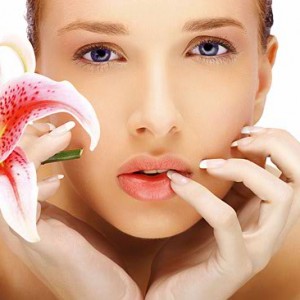 Cosmeceuticals are products that promise to treat a skin condition such as premature aging and acne. These products tend to include moisturizers and other lotions that promise you not only a rich feel but also a younger, blemish-free skin. According to dermatologists, cosmeceuticals help in removing the gap between what is available at a pharmacy and cosmetic counter. They are of the opinion that prescription medications although function effectively do not offer a better feeling that is ensured by over-the-counter moisturizers. Furthermore, the former is not typically available for different types of skin. This is where cosmeceuticals come into the picture to play the role of good quality products for making your skin look clearer and younger irrespective of the skin type. Here are a few common ingredients that cosmeceuticals contain.
Cosmeceuticals are products that promise to treat a skin condition such as premature aging and acne. These products tend to include moisturizers and other lotions that promise you not only a rich feel but also a younger, blemish-free skin. According to dermatologists, cosmeceuticals help in removing the gap between what is available at a pharmacy and cosmetic counter. They are of the opinion that prescription medications although function effectively do not offer a better feeling that is ensured by over-the-counter moisturizers. Furthermore, the former is not typically available for different types of skin. This is where cosmeceuticals come into the picture to play the role of good quality products for making your skin look clearer and younger irrespective of the skin type. Here are a few common ingredients that cosmeceuticals contain.
Vitamins and Antioxidants
Antioxidants are friendly for your badly affected skin, as they are powerful in neutralizing the causal harmful effects, such as inflammation and prematurely aging, triggered by free radicals. Vitamin C and E are powerful antioxidants that are present in many moisturizers that may also contain Vitamins B and D. A serum with Vitamin C plays a vital positive role in protecting one from premature aging by preventing aging spots and wrinkles to appear on skin surface. However, it is recommended buying cosmeceuticals from a dermatologist’s office, as affordable brands might not offer highly effective products. As a limitation, Vitamin E may trigger an allergic reaction in some, as it an allergen. So, always test the product before you start using it.
Retinoids
Regarded as a form of Vitamin A, retinoids have proven their effectiveness in minimizing wrinkles and fine lines, fading age spots, and in softening the skin. Experts recommend choosing a prescription formula that is rich in tretinoin, a kind of retinoid that ensures a highly effective anti-aging regimen. However, such products are available only on prescription and are not true cosmeceuticals. This is because cosmeceuticals with retinoids are less effective for anti-aging regimen.
Alpha and Beta Hydroxy Acids
Moisturizers rich in these hydroxy acids are really useful, as they act as powerful exfoliators for the outer dead skin cell layers. Lactic acid and glycolic acids are the most common Alpha Hydroxy Acids (AHAs). However, other AHAs are also used: Citric acid and hydroxycapric acid. Talking about the Beta Hydroxy Acids (BHAs), salicylic acid is the commonly used one, which in particular, is better at healing acne and rosacea. Both the hydroxy acids help in smoothening the skin and unclogging the pores for treating acne. If you use such a moisturizer with any of the two acids in the morning, other products such as anti-aging creams tend to penetrate your skin more deeply.
Of the two, AHAs may be irritating due to their high acidic content. Further, hydroxy acids can make your skin more sun-sensitive, which makes it essential to apply sunscreen as well. A few cosmeceuticals contain both the acids, which are available at the drugstores. However, it is safe to select a brand that is reliable, such as Neutrogena and Revlon.
Copper Peptides
Of all the peptides, copper peptides act as proteins for cell renewal and truly are the latest fad in the world of cosmeceuticals. This is something that very less products or ingredients promise. These peptides are powerful anti-aging agents as they aid your skin in generating more collagen for giving a younger look. However sadly, there have been no medical trials or studies that prove the working of peptides. One limitation that can restrict the effectiveness of copper peptides is the skin itself, which acts as a good barrier.
Bio: Fermin White is a beauty consultant who advices natural products for maintaining healthier and younger skin. She was recently searching on top natural products for a safe anti-aging regimen, during which she found Lift Serum Pro. Fermin found it to be really useful.

